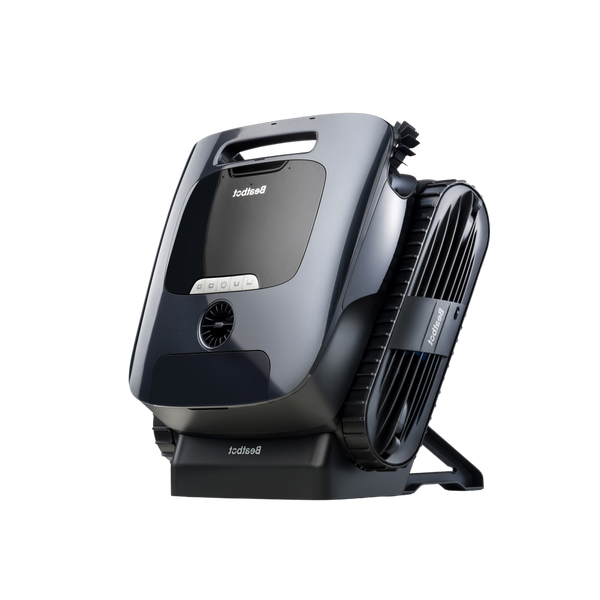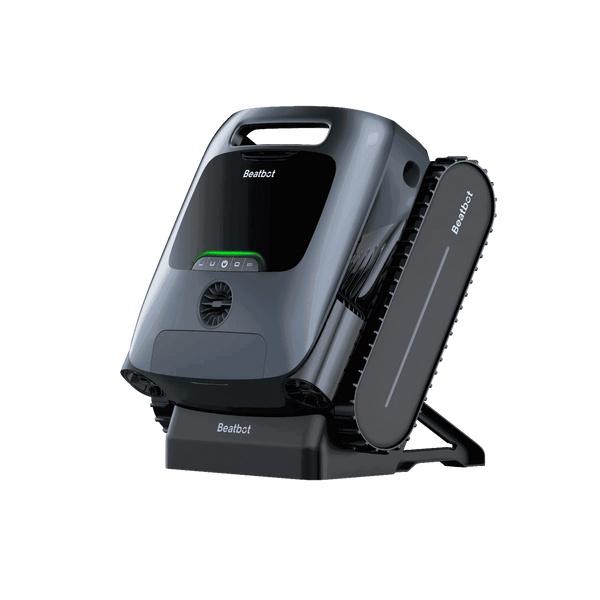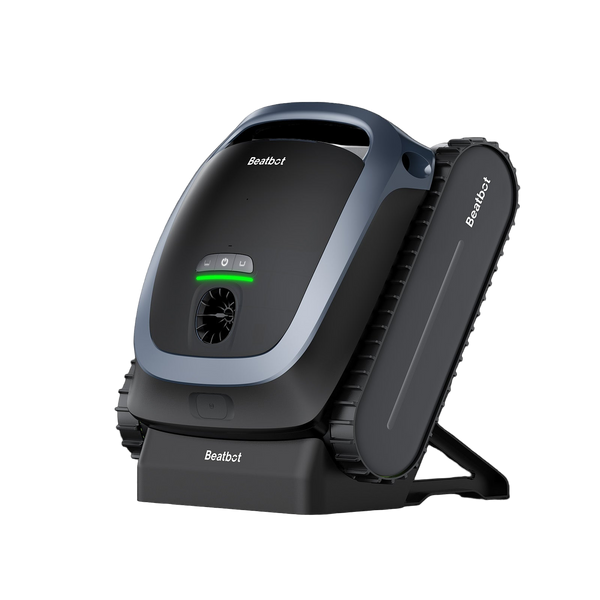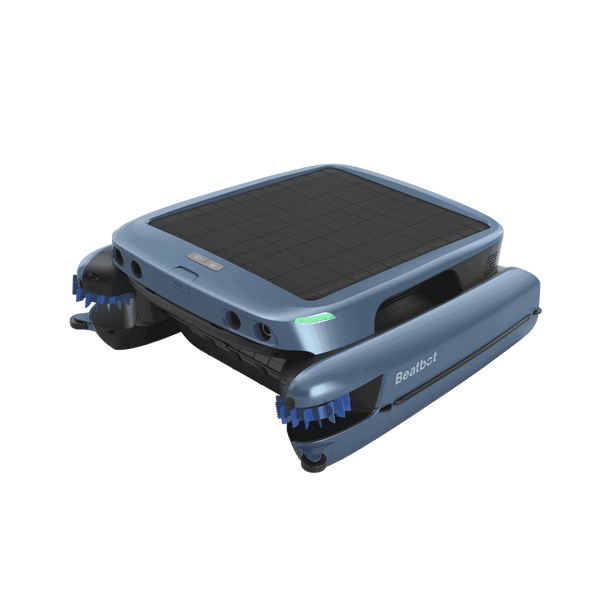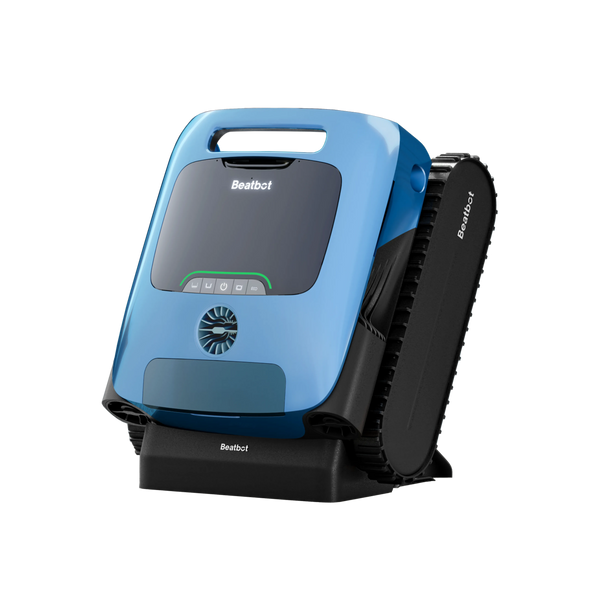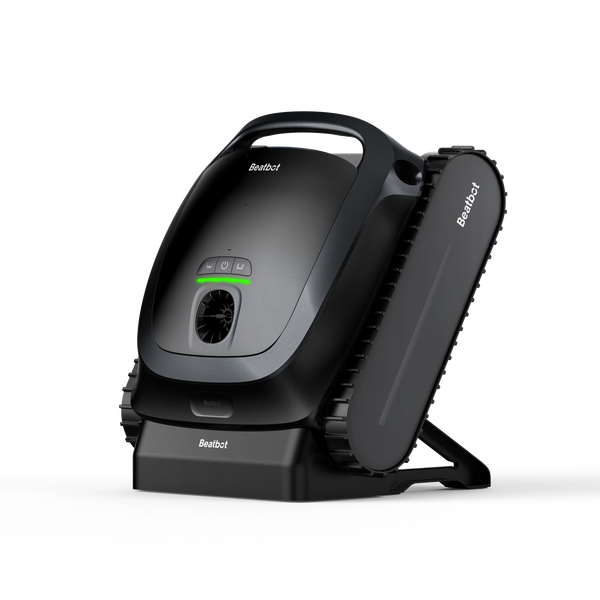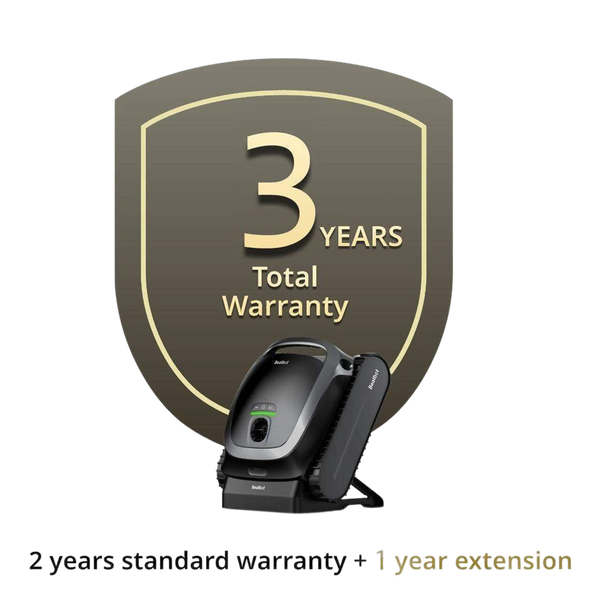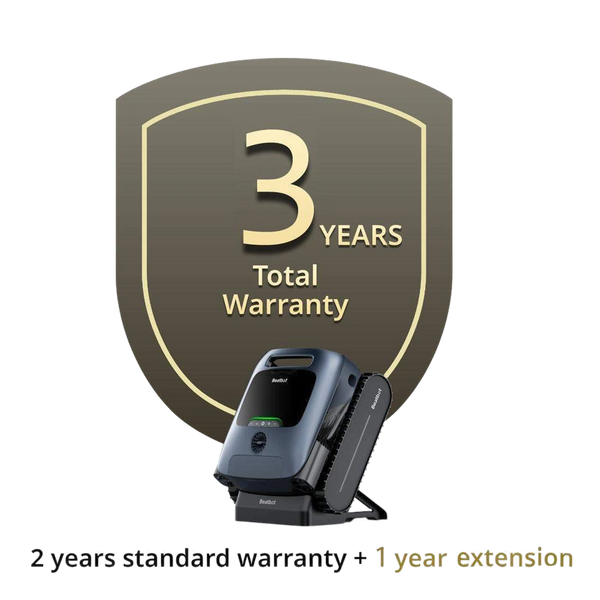Will a Pool Robot Pick Up Algae?
In the quest for a crystal-clear pool, homeowners often wonder if a robotic pool cleaner can handle one of the most persistent nuisances: algae. These advanced devices, designed to automate pool cleaning, promise not only to remove debris and dirt but also to address algae growth effectively. This article delves into the capabilities of robotic pool cleaners, focusing on their ability to combat algae and maintain the pool's aesthetic and hygienic appeal.
Table of content
The Harmful Effects of Algae in Swimming Pools
Algae is a complete pain for pool owners. It turns your water into a disgusting green or swampy mishmash, ruining that crystal aesthetic. It makes pool surfaces slippery and hazardous, causing swimmers to slip and fall, and clogs filters, screwing up water flow and jacking up maintenance costs. It can also promote bacteria that pose health risks and force you to add more chemicals just to manage it.
Understanding the Algae Removal Capabilities of Robotic Pool Cleaners
Robotic pool cleaners are engineered with features that enable them to detect and eradicate algae from your pool's surfaces. Equipped with fine filtration systems and robust scrubbing brushes, these cleaners can remove algae spores before they bloom, preventing the green menace from overtaking your pool
Precision Filtration for Algae Spore Capture
Robotic pool cleaners are equipped with advanced filtration systems designed to capture even the smallest debris, including the microscopic spores of algae.
These precision filters play a critical role in halting the algae life cycle, intercepting spores before they attach to pool surfaces and commence growth.
By ensuring these spores are effectively removed from the water, the robotic cleaners prevent the proliferation of algae, maintaining the pool's aesthetic and health standards.
Dynamic Brushing Action Against Algae
The effectiveness of robotic pool cleaners in combating algae is significantly enhanced by their dynamic brushing mechanisms.
These mechanisms feature brushes engineered to deliver vigorous agitation, effectively dislodging nascent algae formations from the pool's surfaces.
The brushes' design, often incorporating different materials or bristle patterns, ensures thorough contact and cleaning, disrupting the algae's ability to take hold and expand.
Algaecide Dispersion Integration
Certain high-end robotic pool cleaners augment their cleaning capabilities with integrated systems for distributing algaecides and other pool chemicals.
This feature ensures uniform chemical dispersion, targeting potential algae hotspots and providing an additional defense layer against algae bloom, thereby optimizing the pool's chemical balance and clarity.
The Advanced Technology Behind Robotic Pool Cleaner Efficiency
Modern robotic pool cleaners leverage sophisticated sensors and navigation systems to ensure every corner of your pool is reached.
Their methodical cleaning patterns cover the entire pool surface, including walls and the waterline, where algae are most prone to develop, ensuring a comprehensive cleaning.
Navigational Systems for Comprehensive Coverage
Robotic pool cleaners utilize advanced navigational systems, often guided by AI, to map and memorize the pool landscape.
This system allows the cleaner to navigate efficiently, ensuring total coverage and avoiding unnecessary repetition. It methodically traverses every pool section, paying special attention to areas like the waterline and pool walls where algae are more likely to grow, thus ensuring these critical zones receive adequate cleaning attention.
Comparing Robotic Pool Cleaners and Manual Algae Removal
While both manual cleaning and robotic pool cleaners aim to maintain pool hygiene and clarity, they differ significantly in their approach and effectiveness, particularly when it comes to algae removal. Here's how they stack up against each other:
Labor and Time Efficiency of Robotic Cleaners
Robotic pool cleaners automate the time-consuming and physically demanding process of manual cleaning, offering a hands-free solution to pool maintenance.
They operate independently, navigating the entire pool area to ensure a thorough clean, which is essential for preventing algae buildup.
By consistently maintaining the pool without the need for manual labor, these devices save pool owners countless hours of work and effort.
Consistency and Preventive Maintenance
The key benefit of using robotic pool cleaners over manual methods lies in their consistent and routine cleaning capabilities.
Unlike manual cleaning, which may vary in thoroughness and frequency, robotic cleaners offer various cleaning modes to suit different needs, helping to prevent algae growth and maintain a clean and healthy swimming environment.
Features to Look for in a Robotic Pool Cleaner for Algae Removal
Choosing the right robotic pool cleaner is essential for effective algae control. The cleaner's features directly impact its ability to remove and prevent algae, so here's what to focus on when selecting a cleaner for this specific task:
Enhanced Brushing Mechanisms
To effectively combat algae, a robotic pool cleaner must have robust brushing mechanisms.
These specialized brushes are designed to agitate the pool surfaces vigorously, dislodging algae and other stubborn debris.
Effective brushing not only helps in removing algae but also prevents its recurrence, ensuring the pool remains clean and inviting.
Superior Suction and Filtration
A powerful suction system is vital for extracting algae and debris from the pool, while advanced filtration technology ensures these contaminants are captured and not returned to the pool water.
High-quality suction and filtration work in tandem to remove algae efficiently and maintain optimal water quality, crucial for a pristine pool environment.
Best Robotic Pool Cleaners for Algae Removal
Beatbot’s AquaSense 2 Series, debuted at CES 2025, kicks algae to the curb. Three models—AquaSense 2, AquaSense 2 Pro, and AquaSense 2 Ultra—each handle algae growth with ease for any type of pool. Here’s how their individual functions take care of algae for various pools.
AquaSense 2 ($1,599): The Algae-Prevention Base
If you have a less extravagant luxury pool—a modest 30-foot gunite construction in a retiree’s backyard, for example—the AquaSense 2 is a simple algae beater that does the job without overdoing the frills. This sucker has a 150μm dual-layer filter that stands out from the pack because it captures algae spores at least as small as 150 micrometers in diameter before they can set up shop. Less crafty bots allow small particles to go free, but this one’s meshed basket grabs microscopic stuff that makes algae bloom. With two brushes, the brush package offers a vigorous scrub to the pool floor, shaking loose early growths of algae from vinyl or tile surfaces with enough muscle to avoid buildup.
AquaSense 2 Pro ($2,899): The Multi-Environment Algae Slayer
For midsize pools, say, a 50-foot fiberglass stunner at the home of a busy family, the AquaSense 2 Pro takes 5-in-1 algae-fighting technology a step further. This little bot means business: it cleans the floor, walls, waterline, skims the surface, and clarifies the water, targeting all the areas algae like to hide in. Its 150μm and 250μm dual-layer filter catches algae spores and larger debris. It has 5500 GPH suction to gobble up the nastiest sludge, while dual-side brushes, powered by a nine-motor system, scrub to the point of blasting algae off vertical surfaces and pesky waterline edges.
AquaSense 2 Ultra ($3,550): The Algae Planet’s Destroyer
If you’ve got a huge, swanky pool—like a Tampa Bay mansion pool with sunledges, steps, and a deep end—the AquaSense 2 Ultra is your algae-destroying winner. It mimics the Pro’s 5-in-1 cleaning for the floor, walls, waterline, surface, and clarification but amps up the precision. Thanks to its 27 sensors (including an AI camera, dual TOF, and four ultrasonics), the HybridSense™ AI Pool Mapping maps your pool like a pro, targeting algae hotspots like waterlines and corners with deadly accuracy. I’ve noticed lower-end bots skipping these zones, but the Ultra’s smart mapping doesn’t let a thing get past it.
Conclusion: The Role of Robotic Pool Cleaners in Algae Management
Robotic pool cleaners, with their advanced technology and specialized features, represent a formidable tool against algae.
By integrating one of these intelligent devices into your pool care routine, you can significantly reduce the presence of algae, ensuring your pool remains clean, clear, and inviting throughout the swimming season.
Relative Blogs
About the author


